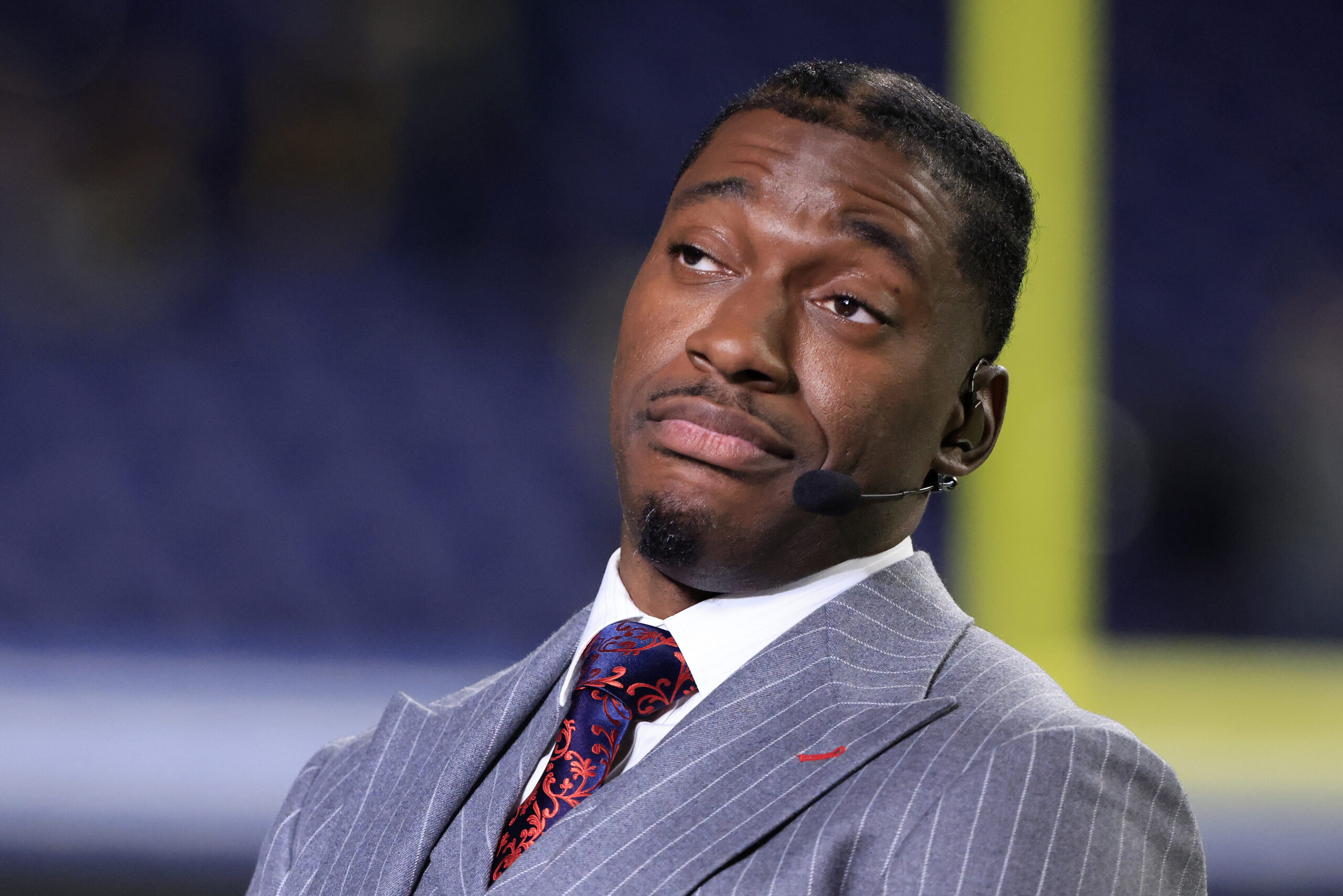This is the first profile in our TSL Leadership Series. This series features individuals who have worked hard, overcome obstacles, exceeded expectations and become successful leaders in the world of sports. We will profile the most interesting, entertaining, knowledgeable, unique and inspirational personalities in the field, those who are leading the charge and inspiring others to follow.
When people see ESPN personality Jemele Hill sitting among a sea of male prognosticators, effortlessly spewing her valued opinions on current and compelling sports topics, not everyone may agree with her — but you have to respect her gangsta’.
Raised humbly in crime-ridden Detroit at a time when poverty was protocol, jobs were leaving town and drugs were rampant, Hill’s love for sports and the encouragement of her mom shielded her from turmoil and sharpened her focus as she worked her way up the sports TV ranks by being deeply knowledgeable, thoroughly experienced and undeniably original. Not yet 40, Hill enjoys a well-earned celebrity status at ESPN as one of the most recognizable faces and unique personalities working for the sports media empire.
I can’t pinpoint an age, but I remember specifically how and why I developed a love of sports. Baseball was my first love. And in those days, you had to read the newspapers to follow your favorite team and players. Now, we couldn’t afford a newspaper subscription. My mother was on welfare and to earn extra money, she would clean houses. One of her clients was an elderly guy and he subscribed to both the Detroit Free Press and the Detroit News. Since my mother couldn’t afford a babysitter, I would have to tag along when she cleaned his house. The reward was that I got to read his newspapers and follow what the Detroit Tigers were doing. I loved the language and how conversational sports columnists were. I’ve loved newspapers ever since.
I always loved writing and was a voracious reader. My parents had a lot of drug issues when I was growing up and the one thing I loved about writing is that if you don’t like your reality, it allows you to create a new one. I also was a natural athlete. So I was sold once I figured out I could combine sports and writing, my two passions.
I grew up in Detroit, specifically on the west side. I endured a lot of upheaval and uncertainty growing up. My father and I were estranged early on because of his drug addiction. My mother also struggled with addiction and the psychological trauma of being a victim of sexual abuse.
Despite their struggles, I knew they always loved me. And my mother always made it clear that she expected me to achieve. Things weren’t always easy, but I appreciate my upbringing because I never would have made it this far without it.
I always loved baseball. I was a natural at it. I had a good arm. I played fearlessly and probably was more competitive than a lot of the guys. I knew because I was often the only girl out there, the boys were going to come at me. I welcomed the challenge, which is part of the reason I’ve never been intimidated in my journalism career.
Anyway, I would watch This Week In Baseball with Mel Allen and all the games that came on Saturdays. My stepfather bought me a bat and glove and I couldn’t be separated from either. I would imitate players’ swings while watching MLB games. I would play baseball with the guys in my neighborhood. I started playing softball at a local recreation center and then played fast-pitch softball in high school. I would dabble in basketball and football too. I played basketball in a rec league in middle school, but I was never as good at any sport as I was at baseball.
If I had to rank the sports I was good at, it would be fast-pitch softball, bowling, and dodgeball. I’d blast folks in the face when we played dodgeball. But since I loved baseball the most, pretty much every Detroit Tiger was my favorite player. I loved Alan Trammell, Lou Whitaker and Jack Morris. I can still name the entire 1984 World Series team.

I also loved Isiah Thomas (sorry Knicks fans) and Steve Yzerman. My favorite NFL player of all time is Joe Montana, followed closely by Jerry Rice.
I attended Detroit public schools for most of my life. I went to Newton Elementary, then Beaubien Middle School before graduating from Mumford High School. I briefly attended a private school for two years, from 5th to 7th grade.
I knew in high school that I wanted to do this. I worked for my high school newspaper. Once a month we would go down to the Detroit Free Press and produce the paper, since that’s what all Detroit high schools did. I just loved the energy of the newsroom. I loved the chaos. I loved the passion. On Thursday and Friday nights I started working at the Detroit Free Press, answering phones and taking down high school sports scores. I was a classic tomboy. The first time I wore a dress and heels was for my high school prom.
Jemele went to college at Michigan State and then worked for The State News, covering both sports and news, and holding a few editor positions. During the summers, she interned at various professional newspapers, including the Lima News, Detroit Free Press, The Philadelphia Inquirer, The Plain Dealer and the News and Observer.
The News and Observer hired me after my internship ended. I was there for nearly two years as a general assignment sports reporter. I moved on to the Detroit Free Press, where I covered Michigan State basketball and football. I was there for six years and in addition to covering college football and basketball, I also got to cover the NBA playoffs, BCS national title games, and the 2004 Olympics. It was my first experience with covering national and international events.
I left the Free Press in 2005 for a very unlikely job — sports columnist. Until that point, I only cared about being a long-form writer. What changed for me was seeing local columnists make the most money at the paper, and being given radio, TV and literary platforms. I took the sports columnist job in Orlando for money, mostly. And with the hope that one day I might cash in on a book deal or radio show.
I was in Orlando for almost two years when ESPN came calling. I never thought about working for ESPN but former ESPN executive Keith Clinkscales became aware of me. We had dinner and he encouraged me to come to Bristol to interview for a general sports columnist position for ESPN.com.
I got the job, and the rest fell into place. But when I took the job, I wasn’t even thinking about a television career. I had some throwaway TV appearances in my first contract and within a couple of months, I’d gone through those. With every year, my television duties increased. And now, I’m a full-time TV talking head.
Initially, I was hired as a dot-com columnist. I appeared on Outside the Lines before I worked at ESPN full time. And then once I got to ESPN, the first show I did was Cold Pizza, which eventually became First Take. I wasn’t nervous. I was too blissfully ignorant to be nervous. I had no idea how to do TV, and strangely, I think it worked for me.
Hill is humble and loyal. She’s a straight shooter and reflects the voice of a younger generation, as evidenced by her many boldly provocative columns and statements which fueled her rise in her early print journalism career. Hill gained strength and repeatedly rebounded from symbolic suspensions and potential pitfalls inspired by nothing more than the powerful linguistics she flexed. She can see BS coming from a mile away. She’s an advocate for the underdog and appreciates the vulnerability in people. As a writer who was fiercely committed to sports journalism at a young age, Jemele was mentoring older journalists way back in the late 90’s and she’s still dropping jewels on ESPN viewers everyday.
Read here for Part II of our exclusive TSL Leadership Series: The Diary of Jemele Hill






